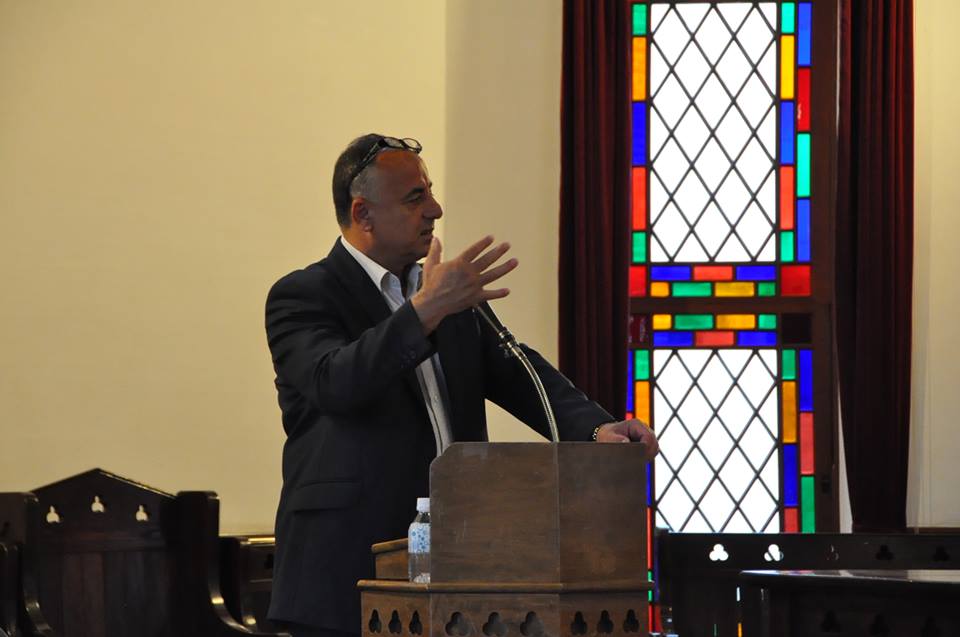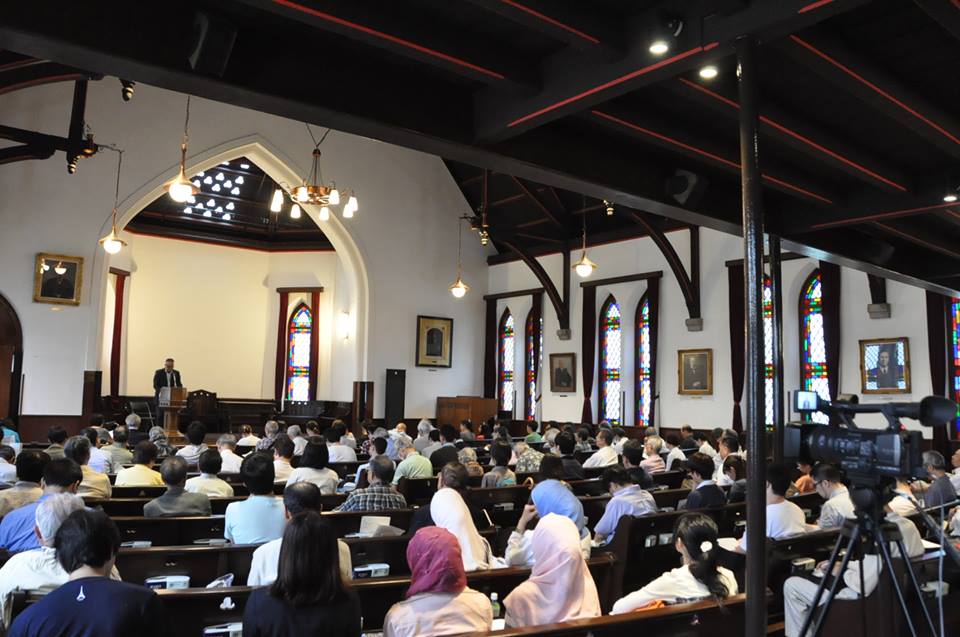Center for Interdisciplinary Study of Monotheistic Religions(CISMOR)Doshisha University
> Public Lectures > Palestine Question and Islamic Extremism: Issues and ChallengesPublic Lectures
Palestine Question and Islamic Extremism: Issues and Challenges
| Date: |
2015/06/03 16:40-18:15 |
|---|---|
| Place: | Doshsiha Chapel, Imadegawa Campus, Doshisha University |
| Lecture: | Muhammad Daraghmeh (Senior Correspondent, Associated Press (Ramallah/Palestinian Authority) ) |
| Summary: | |
|
Mr. Daraghmeh discussed the situation in Palestine and the Gaza Strip. In the 1990s, the Palestinian leader, Chairman Yasser Arafat, was negotiating politically with Israel. At the time, the nationalist Islamic movement known as Hamas was marginal and in public opinion polls, it only acquired around 12% support. However, within a year it became a mainstream power because people realized that Israel was not going to grant Palestine independence. As a result, the four-year conflict known as the Second Intifada occurred. In 2007, Hamas ruled the Gaza Strip and established its own Islamic government as a result of a bitter conflict with the Fatah movement, which led the Palestinian Authority. In response to Hamas’s rule of the Gaza Strip, Israel established a strict blockade, which led to a tense relationship. Although Hamas was a strong organization with an estimated 30,000 fighters, it was known as a terrorist group by Western countries. Due to the blockade and the tense situation it brought about, three Israel-Palestine wars subsequently occurred in 2008, 2012, and 2014. The Islamic Jihad is another Islamic movement that is expanding its power in the Gaza Strip, second only to Hamas; it is a military power with around 12,000 fighters. The two organizations appear to be moderate in comparison with ISIS (Islamic State of Iraq and Syria) and Al-Qaeda. Due to their existence, Palestine has been protected from radical movements like ISIS and Al-Qaeda. However, there are three reasons that such Islamic extremist movements are expanding their power in Palestine: 1) the peace process with Israel has stalled; 2) the economic blockade by Israel and Egypt; and 3) most importantly, the victories of ISIS in nearby in Syria and Iraq; in Palestine, these victories having attracted supporters. However, other factors exist which are counter to these developments. First, Palestinians are weary of the long conflict, which has involved much blood and sacrifice, and have lost faith in military struggle as a means of freeing their land. After viewing the bloodshed and atrocious incidents in Iraq, Syria, Libya, and Yemen, they do not want the same thing to occur in Palestine. Second, Palestine historically has experience that makes them immune to ISIS. Third, no internal sectarian conflict exists in Palestine. In other words, no conflicts between Sunnis and Shi’ites exist similar to those in other countries. Domestic sectarian conflict is occurring in the background to a radical Islamic movement, such as ISIS rapidly appearing in Iraq, Syria, Lebanon, and Yemen. The final reason is that extremist groups like ISIS and Al-Qaeda do not view the Palestinian issue as a priority, as their primary interest is the sectarian conflict in Syria and Iraq. A recent public opinion poll of people in the West Bank found that only 3% percent of them believe that ISIS represents Islam. The same poll found that 13% of those in Gaza feel that ISIS represents Islam. This suggests that if Israel and Egypt continue its Gaza blockade, the power of ISIS could grow. The President and CEO of American Near East Refugee Aid (ANERA) reports that the number of Gaza children suffering from anemia has risen from 19% in the summer of 2014 to 31% percent. Furthermore, ANERA is facing considerable difficulties in collecting funding from Western countries to benefit the Gaza Strip. Gaza’s economy is not recovering and 70% of its residents are unemployed There is a possibility that ISIS’s power will expand in Gaza depending on the development of Hamas’ relationship with Israel, Egypt, and Western countries. Kotaro Hiraoka Postdoctral Fellow, CISMOR |
|

